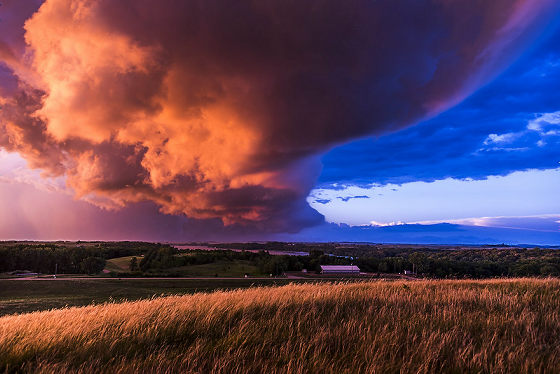Why do 'floods once in 100 years' occur so often?

by
The words 'hot heat once in 100 years' and 'heavy rain once in 100 years' are used in weather forecasts, but the word 'once in 100 years' seems to be frequently used in the news. Australia suffered a catastrophic flood in March 2020, but why so often 'once in a hundred years' happens, says Andy Pittman, an atmospheric scientist at the University of New South Wales. Explains.
What is a 1 in 100 year weather event? And why do they keep happening so often?
https://theconversation.com/what-is-a-1-in-100-year-weather-event-and-why-do-they-keep-happening-so-often-157589
First, Mr. Pittman explained that 'an event that occurs once in 100 years' does not mean 'an event that occurs exactly every 100 years.' Meteorologists use the term 'events once in 100 years' to mean 'events that occur more than once in 100 years on average.' In other words, if you think in units of 1000 years, an event once in 100 years will occur more than 10 times. When this '10 events in 1000 years' occurs multiple times in a few years and then does not occur for hundreds of years, the event is 'an event once in 100 years', but it becomes more than that.

Against the background of the overly misunderstood word 'every 100 years', Pittman commented, 'Maybe we should avoid using this word.'
In addition, even if an event occurs once every 100 years on average in a specific place, if the observation range is expanded, there will be multiple places where the event occurs once every 100 years, and the frequency of experience will increase. Said Pitman. This is the same as the phenomenon that 'even if the probability that you win the lottery is 1 in 1,000,000, the probability that' someone 'will win is higher.'
Taking Australia as an example, Mr. Pittman also mentioned that 'there are only about 100 years of reliable data to determine' once in 100 years 'in the first place.' It is believed that there may be rainfall, droughts, floods, etc. that are not included in the data, and that the existing 'every 100-year event' may not be the worst case.
Pittman also explained that flood risk may be higher than ever due to changes in rainfall and river flow, which are the basic data for determining 'events once in 100 years.' .. Changes in land reclamation and management methods, and of course climate change have led to extreme rainfall, which also increases flood risk.

by J Swanstrom (Never enough time ...)
For the reasons mentioned above, Mr. Pittman cautioned that the 'event once in 100 years' in the news should not be considered as 'it will not happen in another 100 years'. More than ever, 'one-in-a-century events' can happen and we need to be prepared.
Related Posts:
in Science, Posted by darkhorse_log







